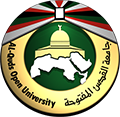It was established in 2000 at Information and Communication Technology Center (ICTC) . In 2013, the training and development unit was merged at the Continuing Education and Community Service Center, in order to mobilize efforts, experiences and have the training reference in one place. The Unit consists of three main sections: Training, International Exams and Accreditations, and Technological Projects. Training and Development Unit plans and implements training programs; programs that fulfill the training needs of QOU staff, students, community members and institutions by adopting a methodology that applies best training practices and international standards.
Objectives & Duties:
- Planning and coordinating for training programs and projects that meet the training needs of QOU staff and students, in addition to local, private and public organizations. The department selects best training programs that meet current challenges and future needs.
- Capacity building of human resources through fulfilling the training needs, depending on modern methods and methodologies, based on international standards.
- The ongoing development of knowledge and skills for the University employees, students and local community members through organizing various training programs and activities relevant to continuous education.
- Providing international accredited training references and methodologies through establishing partnerships with specialized training institutions and companies.
- The possibility of holding accredited specialized international exams in fields of professional and technical trainings.
- Managing and operating computerized systems that are used in training management, in addition to the servers and computers that are used in international exams.
- Holding IT and communication employment exams, for the University job candidates, by using modern tools to test the skills and capacities of the candidates.
Training Section: This section is responsible for planning, coordinating and implementing the training programs, in addition to organizing the training and standardizing the administrative technical and financial procedures of the training .
Technological projects section
This section had been established due to its significant role in development, management and implementation of projects funded by local or international bodies. In addition, work in cooperation with the colleges, academics and experts in order to achieve the ongoing development of teaching and learning processes at the University, through the academic and administrative development projects that are funded by different national or international funding agencies.
Work mechanism in the Training and Development section
First, in terms of training methodology
The training and development section adopts a training methodology based on optimal training practices and training methods: lectures, brainstorming, role-playing, games, working groups, exercises and worksheets, drama and simulate reality, case studies and practical application ... etc. Furthermore, apply modern techniques and training and media (audio, visual and read), where the emphasis is on the practical side, to apply the skills they acquired. All training courses are designed to be dynamic and practical for the transfer of expertise and training, and to enable the trainees to apply the concepts quickly and accurately. The Continuing Education Center works to provide appropriate training environment to ensure the effectiveness of training. This methodology includes the following:
- skills Assessment: to achieve the desired goals of the training process in improving the performance; the Center for Continuing Education has developed several assessment programs for trainees as follows:
- Regular assessment for each part of the training program: This is done through tests and questions that aim at assessing the level of the skills, which the trainee has acquired before moving to and a new subject.
- Assessment forms: Each trainee fills assessment form at the end of each session or training program, so the Training Coordinator can modify any deviations related to the coach or services, if any.
- E-evaluation form: CEC contacts the trainees and applicants of International exams, which are held at the University in order to evaluate the training services they received, in order to evaluate any deviations in the quality of training services, whether training or international exams courses obtained in the Continuing Education Center or in the various branches of the university. The e-assessment form is available on the web page of the University to make this assessment.
- Enhancing experiences: the training process is beyond theoretical abstract for the fact that the team of trainers practice the work that is related to the training topics that they offer, which makes trainees benefit more from the training through the practical experience of the trainers, who have extensive experience in multiple areas and hold international certifications, such as e-learning and the development of electronic platforms, and networking systems, as well as programming languages and databases, management and development of computerized administrative and financial systems using Oracle, Java and Microsoft Linux and Microsoft operating systems .
Second: in terms of Training team: The CEC has a team of qualified accredited trainers who received their international certificates from specialized companies. They are selected from among the top graduates and within the standards adopted by the University for this purpose after passing a practical exam. We continuously focus on enhancing the trainers’ skills and capacities.
Third: in terms of infrastructure of training services:
Al-Quds Open University provides up to date labs and training halls, and offers the best technological infrastructures in Palestine. The labs are equipped with the latest technology, computers, projectors and training devices, in addition to air-conditioning system and comfortable atmosphere for training. The Continuing Education Center seeks always to invest in available resources such as laboratories, Internet lines and training halls to hold training programs with high quality for the largest possible number of the staff and students of the University and for community members to develop their skills in various fields.
Fourth: In terms of international accreditation in the field of training:
International accreditation of the training, training centers and international exams in multiple fields:
 Oracle Academy.
Oracle Academy.
 Microsoft IT Academy.
Microsoft IT Academy.
 Red hat Training and Examination Center
Red hat Training and Examination Center
 Partnership with Mile2 و IT Security C&T
Partnership with Mile2 و IT Security C&T Authorized Prometric Testing Center – APTC.
Authorized Prometric Testing Center – APTC.
 International Certiport Authorized Testing Centers.
International Certiport Authorized Testing Centers.
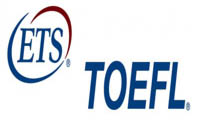 TOEFL Authorized Testing Centers
TOEFL Authorized Testing Centers
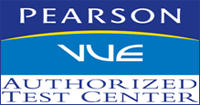 VUE Pearson – Authorized Testing Center.
VUE Pearson – Authorized Testing Center.
 Authorized ICDL Training and Testing Center.
Authorized ICDL Training and Testing Center.
Training programs and international accredited certificates
The CEC provides several specialized diplomas and training programs in addition to the possibility of obtaining the following international certificates:
First: International Certificates in Information & Telecommunication Technology:
 Microsoft Office Specialist (MOS): the first specialized Certificate in Microsoft Office Programs. It is considered as one of the main standards in the skills of using Office Applications in general, it helps to meet the requirements of modern office work for both experts and beginners.
Microsoft Office Specialist (MOS): the first specialized Certificate in Microsoft Office Programs. It is considered as one of the main standards in the skills of using Office Applications in general, it helps to meet the requirements of modern office work for both experts and beginners. Internet & Computing Core Certification (IC3): Internet and Computing Core 3 Program is considered as the first international accredited program for developing computer skills within international standards, in order to measure the basic knowledge and skills in Internet & Computers. This certificate holder gets international recognition of acquiring required knowledge & basic skills in using computers, and he/she has full knowledge in computer basics such as tools, software, networks and Internet.
Internet & Computing Core Certification (IC3): Internet and Computing Core 3 Program is considered as the first international accredited program for developing computer skills within international standards, in order to measure the basic knowledge and skills in Internet & Computers. This certificate holder gets international recognition of acquiring required knowledge & basic skills in using computers, and he/she has full knowledge in computer basics such as tools, software, networks and Internet. Microsoft Certified System Engineer (MCSE): This certificate holder is specialized in designing basic solutions for computer networks in (Windows) Operating System and other Microsoft Services (E-Mail, Internet, Web, files transfer, active guide & others).
Microsoft Certified System Engineer (MCSE): This certificate holder is specialized in designing basic solutions for computer networks in (Windows) Operating System and other Microsoft Services (E-Mail, Internet, Web, files transfer, active guide & others).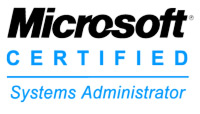 Microsoft Certified Solutions Administrator (MCSA): This certificate helps administrators to run computer networks, solve technical problems, design and build networks with Microsoft Windows operating systems.
Microsoft Certified Solutions Administrator (MCSA): This certificate helps administrators to run computer networks, solve technical problems, design and build networks with Microsoft Windows operating systems. Microsoft Certified Application Developer (MCAD: ): This certificate enables software developers to develop programs, create applications or modify systems by using Microsoft.net Software.
Microsoft Certified Application Developer (MCAD: ): This certificate enables software developers to develop programs, create applications or modify systems by using Microsoft.net Software.
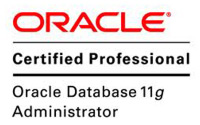 Oracle Certified Administrator – Database Administrator (OCP-DBA): This certificate qualifies administrators to run the most advanced information systems (Oracle Database). These certificate holders are paid the highest salaries in information and telecommunication technology field.
Oracle Certified Administrator – Database Administrator (OCP-DBA): This certificate qualifies administrators to run the most advanced information systems (Oracle Database). These certificate holders are paid the highest salaries in information and telecommunication technology field. Oracle Certified Professional Developer (OCP-Developer): This certificate allows its holder to develop skills in (Oracle) database development. Candidates for this certificate are subjected to show their proficiency in (Oracle) development tools, and required skills to build Internet applications.
Oracle Certified Professional Developer (OCP-Developer): This certificate allows its holder to develop skills in (Oracle) database development. Candidates for this certificate are subjected to show their proficiency in (Oracle) development tools, and required skills to build Internet applications. Red Hat Certified System Administrator (RHCSA): Global Red Hat Company developed its international certificate in its Open Source Operating System (RHEL), so it developed Red Hat Certified System Administrator (RHCSA) Certificate, which is considered as basic requirement to obtain Rad Hat Certified Systems Engineer (RHCSE) Certificate.
Red Hat Certified System Administrator (RHCSA): Global Red Hat Company developed its international certificate in its Open Source Operating System (RHEL), so it developed Red Hat Certified System Administrator (RHCSA) Certificate, which is considered as basic requirement to obtain Rad Hat Certified Systems Engineer (RHCSE) Certificate.
 Red Hat Certified Engineer (RHCE): This certificate is called “The Crown’s gem” in Linux Certificates”, it highlights the individual capabilities in establishing networks in Red Hat operating system. Cert Cities Magazine considered this certificate as the most desired certificate in information systems field.
Red Hat Certified Engineer (RHCE): This certificate is called “The Crown’s gem” in Linux Certificates”, it highlights the individual capabilities in establishing networks in Red Hat operating system. Cert Cities Magazine considered this certificate as the most desired certificate in information systems field.- Various training courses in Information Security & Protection field: These certificates qualify holders to acquire necessary skills to check, analyze and identify computer networks and systems weaknesses, and identify best protection techniques to avoid any possible hack that may expose networks and systems to risk.
